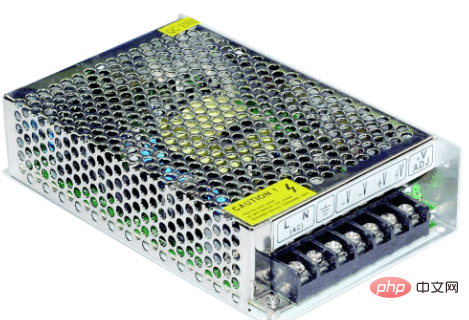Computer power means power supply. Just press the Power button on the computer to shut down the computer; the power supply provides the electrical energy required by all components in the computer, and the size of the power supply, whether the current and voltage are stable, will Directly affects the computer's performance and service life.

Recommended: "Programming Video"
Power means power by default in the computer, press Press the Power button on the computer to shut down the computer.
The power supply provides the power required by all components in the computer. The size of the power supply and whether the current and voltage are stable will directly affect the working performance and service life of the computer.
The computer power supply converts AC power into stable DC power such as 5V, -5V, 12V, -12V, 3.3V through a switching power supply transformer to supply the system version, floppy disk, hard drive and various adapters in the host box Used by system components such as expansion cards. In layman's terms, if one power supply breaks down, another backup power supply takes its place.
Hardware availability can also be enhanced by providing battery backup for nodes and disks. HP-supported uninterruptible power supplies (UPS), such as HP PowerTrust, protect against momentary power outages. The disks should be connected to the power supply circuits in such a way that the mirror copies are connected to different power supplies. The root disk and its corresponding node should be powered by the same power circuit.

The above is the detailed content of What does computer power mean?. For more information, please follow other related articles on the PHP Chinese website!